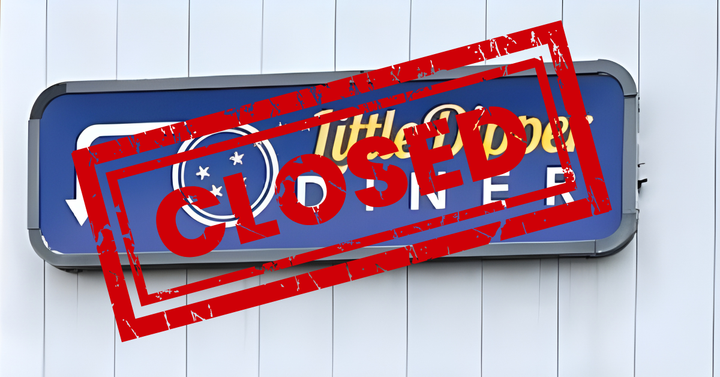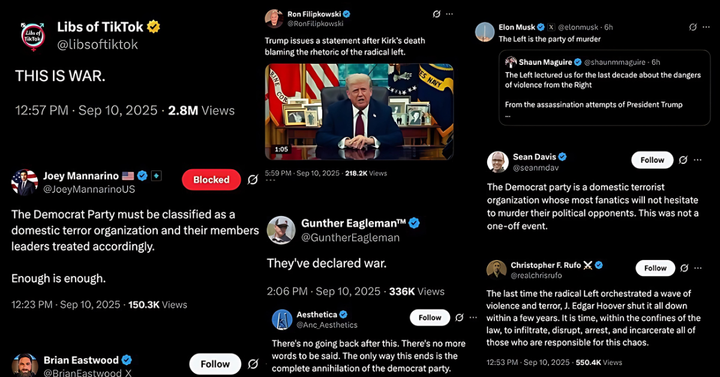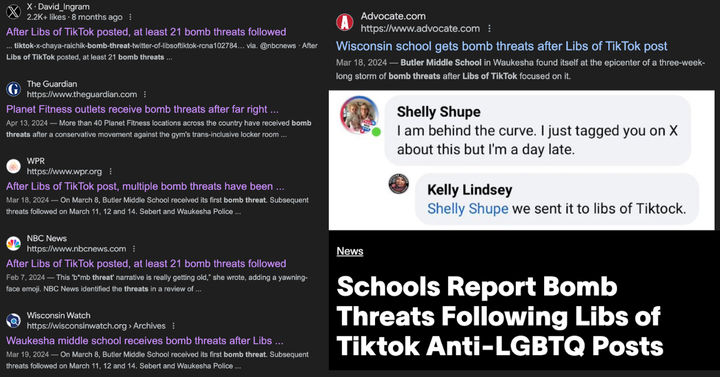Alaska DHSS Reportedly Fielding Bronson Megadonor-Owned WEKA Billing Complaints
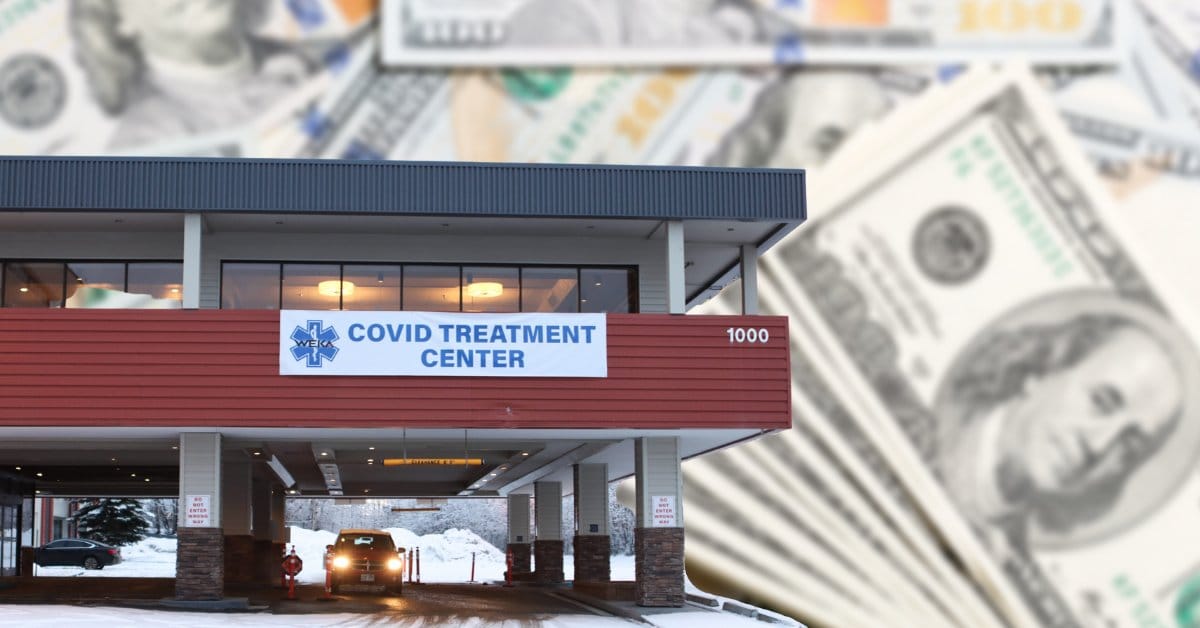
WEKA's Evusheld SNAFU
In March, EndPoints News Editor Jason Mast reported on Anchorage resident Scott Selman’s experience with WEKA Medical. Selman underwent a double lung transplant in 2011 and took immunosuppressants to prevent his body from rejecting the organs that saved his life. When the highly contagious Omicron variant of COVID-19 arrived, Selman’s transplant team at the University of Washington called and told him that a new drug, Evusheld, had become available and that it might protect him and other immunocompromised individuals against the virus.
Selman called around looking for the drug and learned through an Alaska state health official that WEKA Medical carried the drug. According to EndPoints News, a WEKA receptionist gathered Selman’s details and informed him that he would have to pay $550 via credit card before being serviced. They would then charge his insurance for another $950 and said that if insurance would not cover it, he would have to pay it himself.
Evusheld is authorized as two shots in the hip, but a WEKA “nurse” gave him the antibody by IV infusion. That decision prompted Selman’s transplant team to call and reprimand WEKA, who said they hadn’t known and recommended Selman come back in 45 days. EndPoints News reported that a spokesperson for AstraZeneca, the company that developed Evusheld, said it was “concerning” that the clinic administered the drug by IV and referred Selman’s case to the medical affairs team for investigation.
Weeks after Selman’s visit, he got a call from a state official informing him that WEKA had shut down and pointed him to a site at a nearby mall, where he was given the antibody properly free of charge. He never heard from WEKA for the $950, but they also never refunded the $550 upfront charge.
Free treatment? That'll be $550
In the week since EndPoints News reported on Selman’s visit to WEKA, Anchorage residents have come forward alleging they’ve been unable to get their insurance companies to reimburse the $550 up-front treatment fee.
Anchorage resident Robyn Langlie says she is one such individual. Langlie says she was referred to WEKA by her physician in January after becoming ill with COVID-19 and said that she paid WEKA’s $550 upfront treatment fee only to later learn from her insurance company that the costs associated with her antibody treatment were not covered.
“So I’m out $550 and it didn’t help me. I’m sure they [WEKA] made a lot of money,” Langlie said.
In an effort to learn more about why her claim was rejected, Langlie said she followed up with her insurance company, who told her to resubmit her receipt from WEKA, which she says she did, only to learn that the insurance company required an Employer Identification Number (EIN) and a CPT/billing code to process her claim — neither of which she possessed. Langlie said she has made numerous attempts to reach WEKA for the required information necessary to process her claim.
“Three calls and one contact form filled out and I still don’t have a reply.”

Another Anchorage resident who says they sought and received antibody treatment at WEKA in January said Blue Cross rejected reimbursement of their $550 upfront treatment fee but said the insurance company told them they could file an appeal but could make no assurance about the outcome.
The individual, who asked to remain anonymous citing potential retribution, also alleges that the WEKA employee who processed their $550 upfront treatment fee made it sound as though getting the fee reimbursed by their insurance company was a sure thing claiming that it would take roughly three weeks to receive reimbursement in the form of a check.
The individual said they looked for a way to contact WEKA on their website and found an alert telling visitors to call the State of Alaska’s COVID Hotline number if they needed assistance. After informing a hotline representative that they were calling with a potential WEKA billing issue, the representative took the individual's information and passed it on to a manager.
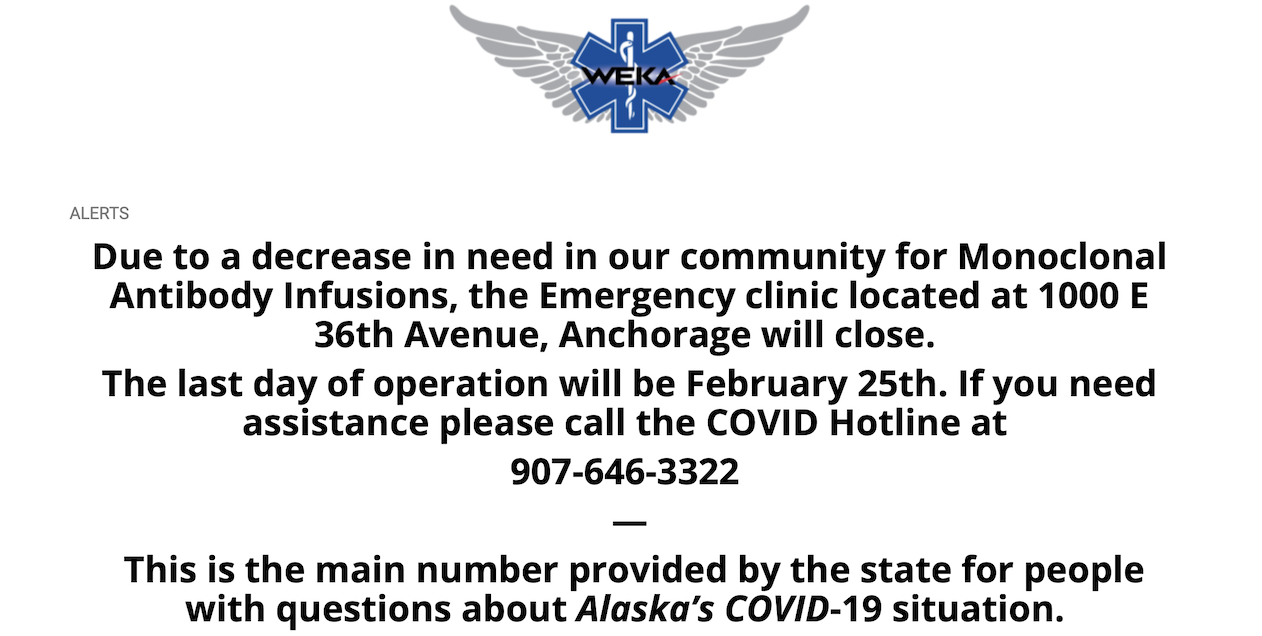
“The manager called me back and said they were getting complaints about WEKA billing and said that she forwarded my information to someone who is specifically working on it.”
Per the individual, the manager who contacted them encouraged them to call the hotline again if someone didn’t reach out to them about their billing issue within two weeks.
An Anchorage healthcare worker, who contacted me recently and who wishes to remain anonymous for obvious reasons, says they’re familiar with some of the billing complaints about WEKA and said some individuals who sought antibody therapy at WEKA’s clinic have called them crying, allegedly stating they received bills of around $8,000 after the fact.
Alaska DHSS non-responsive
Intrigued that Alaska DHSS allegedly has an employee specifically working in some capacity on billing complaints related to WEKA, I reached out to the DHSS communications director and asked them:
- To confirm if DHSS had in fact received calls from former WEKA patients with billing complaints
- To confirm if a state employee is tasked with working on the alleged WEKA complaints
- Whether DHSS had any knowledge that some WEKA patients may have received bills in excess of $8,000 after being treated at WEKA’s clinic
- How many former WEKA patients, if any, had contacted DHSS with WEKA-related billing concerns
- Whether DHSS has been made aware of any allegations related to the quality of care provided to WEKA Medical patients other than what was detailed in the EndPoints News article about Anchorage resident Scott Selman.
At the time of publication, Alaska DHSS has not responded in any manner to my request for comment.
Perhaps worth noting is that a spokesperson for the Alaska Department of Health did not respond to repeated requests for comment sent by EndPoints News before the publication of their article.
Meanwhile, back in Anchorage, Anchorage Assembly Chair Suzanne LaFrance is still waiting on the Bronson administration to produce details about the Municipality of Anchorage’s lease/use agreement of the former Golden Lion Hotel with WEKA Medical, the Bronson megadonor-owned business that the mayor heavily promoted last October for standing up a COVID-19 treatment center over other free options.
